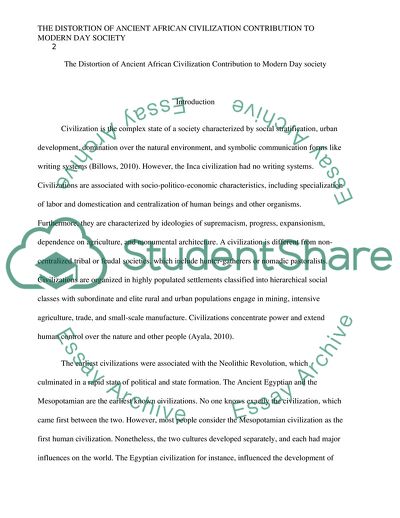Cite this document
(Distortion of Ancient African Civilization Contribution to Modern Society Literature review Example | Topics and Well Written Essays - 2750 words, n.d.)
Distortion of Ancient African Civilization Contribution to Modern Society Literature review Example | Topics and Well Written Essays - 2750 words. https://studentshare.org/anthropology/1851714-the-distortion-of-ancient-african-civilization-contribution-to-modern-day-society
Distortion of Ancient African Civilization Contribution to Modern Society Literature review Example | Topics and Well Written Essays - 2750 words. https://studentshare.org/anthropology/1851714-the-distortion-of-ancient-african-civilization-contribution-to-modern-day-society
(Distortion of Ancient African Civilization Contribution to Modern Society Literature Review Example | Topics and Well Written Essays - 2750 Words)
Distortion of Ancient African Civilization Contribution to Modern Society Literature Review Example | Topics and Well Written Essays - 2750 Words. https://studentshare.org/anthropology/1851714-the-distortion-of-ancient-african-civilization-contribution-to-modern-day-society.
Distortion of Ancient African Civilization Contribution to Modern Society Literature Review Example | Topics and Well Written Essays - 2750 Words. https://studentshare.org/anthropology/1851714-the-distortion-of-ancient-african-civilization-contribution-to-modern-day-society.
“Distortion of Ancient African Civilization Contribution to Modern Society Literature Review Example | Topics and Well Written Essays - 2750 Words”. https://studentshare.org/anthropology/1851714-the-distortion-of-ancient-african-civilization-contribution-to-modern-day-society.


